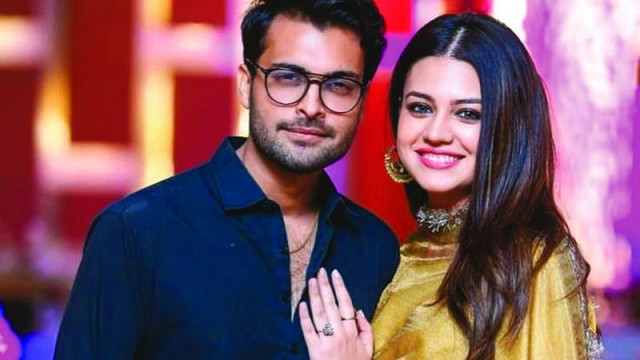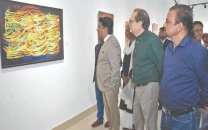Asad Siddiqui criticises 'biased casting' in Pakistan’s entertainment industry
Siddiqui revealed that casting frequently favours those with lighter skin tones or personal connections

Actor Asad Siddiqui has criticised what he describes as "biased casting practices" in the country’s entertainment industry, arguing that selections are often based on connections and appearance rather than talent.
In a recent appearance on Ushna Shah’s talk show, Siddiqui spoke candidly about his concerns. He noted that he has distanced himself from certain industry gatherings, citing instances of "sweet words" shared in person that turn into criticism behind backs.
Siddiqui also highlighted that casting frequently favours those with lighter skin tones or personal connections, a practice he called “unfair and apparent on screen.” He argued that these dynamics dilute merit and affect the quality of productions.
To counter this, Siddiqui proposed a stronger audition process. He further revealed plans to enter production himself, expressing a hope to create more equitable opportunities for aspiring actors.
Siddiqui, whose wife Zara Noor Abbas hails from a notable acting family that includes Bushra Ansari and Asma Abbas, has established himself as a prominent figure in Pakistan’s showbiz.
His remarks reflect a call from industry insiders for change in casting standards to better support talent over appearance or social ties.
How Asad Siddiqui fell for now wife Zara Noor Abbas
In his appearance on Faysal Quraishi's podcast, Asad Siddiqui offered fans a glimpse into his journey to finding love with actor Zara Noor Abbas.
Asad revealed that he first heard of Zara by way of her aunt, Bushra Ansari, years before they actually met. "When I did my first dramas, Azar Ki Ayegi Baraat and Dolly Ki Ayegi Baraat, Zara was mentioned in passing. I had never seen her or a picture of her, but Bushra Apa would mention her," he shared, with a fond look back at those early days.
There was no instant spark or sense of destiny back then; Zara was just a name in casual conversation. Life moved on, as Asad explained, "Then that chapter closed, but six or seven years later we worked together again, and she mentioned Zara again." Only later, by pure coincidence, did Zara come into his life in person.
The chemistry began as friendship, he recounted, fuelled by shared friends like Sajal Ali, Yasir Hussain, and Asim Azhar. "Coincidentally, Zara was in town for work, and she was friends with Sajal. So, I went to meet up with them and we became friends," he said, describing how they spent time in a group. "Yasir, Asim and I were always together, and we would meet up with Zara and Sajal. Eventually, we got together. Those were good times."
But for Asad, life changed dramatically once they marriedand even more so when they welcomed their daughter, Noor e Jahan, this past March. "After marriage, you can't be out of the house at all times. You should let your spouse know when you're going to be home, if you'll eat with them or not. After a child, you can't even do that. You're on set and wanting them to pack up," he shared, hinting at the challenges that come with balancing family and work. The transition to fatherhood has clearly deepened his appreciation for Zara's role.
Reflecting on parenthood, Asad noted, "I try to stay up with the baby as much as I can, but there are times where I'll wake up in the middle of the night and see Zara already awake, walking around or feeding the baby. I'm always shocked by how a mother's life is never her own after a baby. Everything revolves around the child."



















COMMENTS
Comments are moderated and generally will be posted if they are on-topic and not abusive.
For more information, please see our Comments FAQ